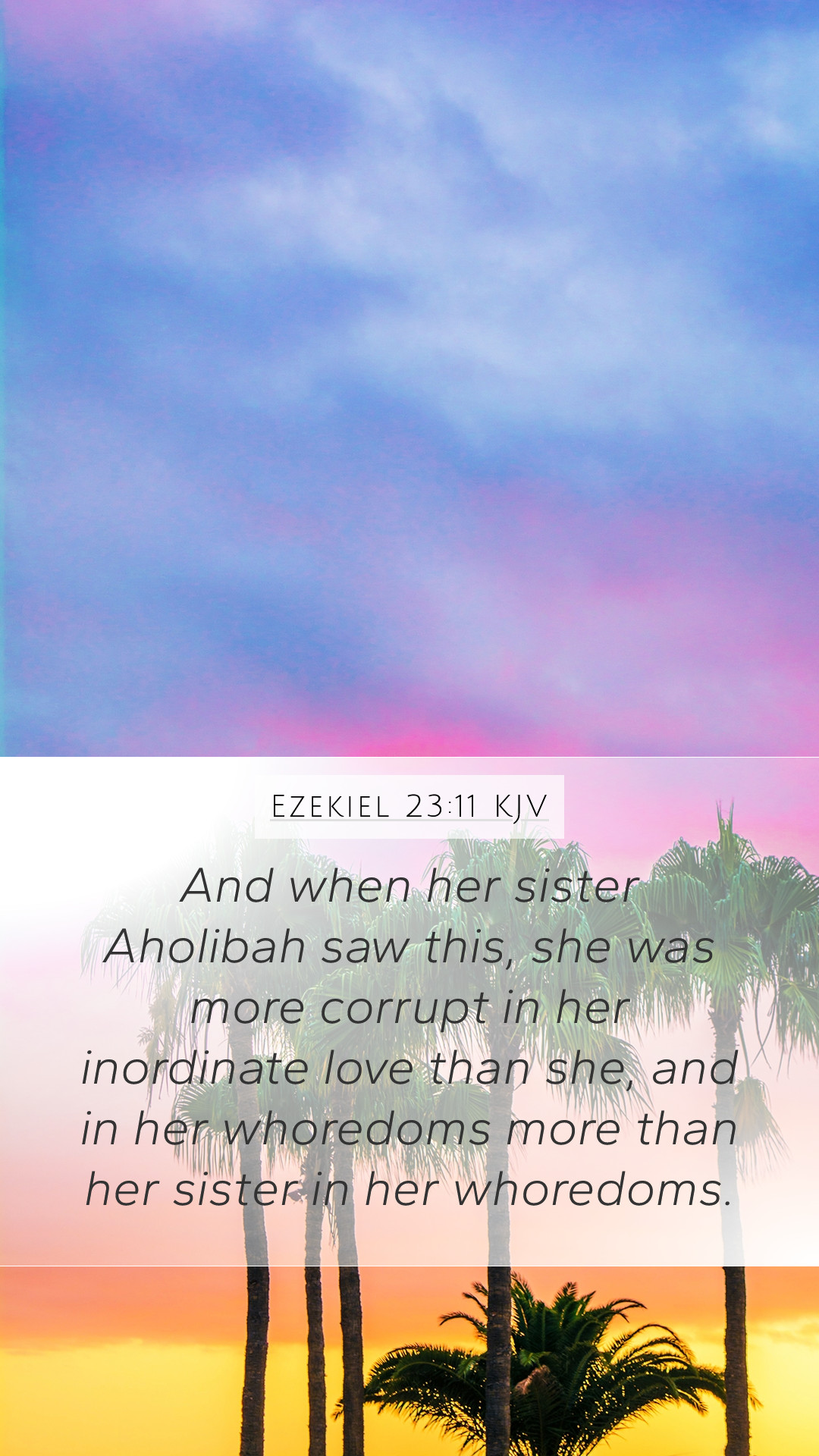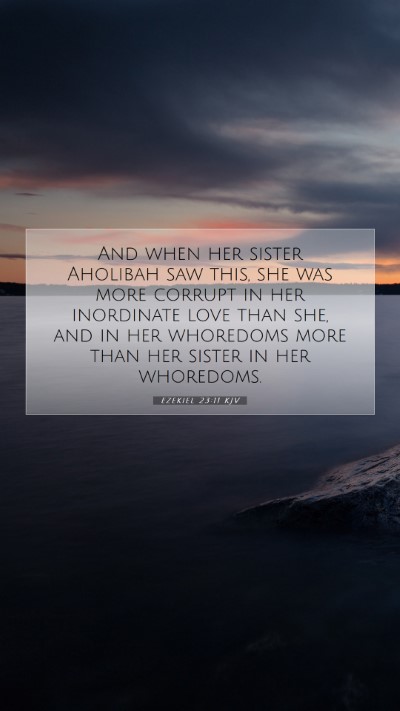Bible Verse Commentary: Ezekiel 23:11
Verse: Ezekiel 23:11 (KJV): "And when her sister Aholibah saw this, she was more corrupt in her inordinate love than she, and in her whoredoms more than her sister in her whoredoms."
Understanding Scripture: Overview of Ezekiel 23:11
This verse is a part of a larger allegorical representation found in Ezekiel 23, where two sisters, Aholah and Aholibah, symbolize Samaria and Jerusalem, respectively. The chapter portrays their unfaithfulness to God through idolatry and alliances with foreign nations, employing vivid and sometimes graphic imagery to illustrate spiritual betrayal.
Bible Verse Explanations: Key Themes
- Spiritual Adultery: This verse emphasizes the concept of spiritual adultery, where the people of Israel are likened to unfaithful women who turn to other gods.
- Comparison of Corruption: Aholibah (Jerusalem) is depicted as being even more corrupt than Aholah (Samaria), which speaks to the escalation of Israel's rebellion against God.
- Inordinate Love: The term "inordinate love" refers to excessive and misplaced affections, highlighting the people's misguided loyalties.
Bible Verse Interpretations: Insights from Commentaries
Matthew Henry's Commentary
According to Matthew Henry, Ezekiel 23:11 serves as a profound lesson regarding the consequences of spiritual infidelity. The comparison between the two sisters illustrates how Aholibah's sins not only matched but exceeded those of Aholah, indicating a deeper level of betrayal and rejection of God's covenant.
Albert Barnes' Commentary
Albert Barnes elucidates that the actions of the sisters serve as a metaphor for the waywardness of the people of Israel. Aholibah’s more severe corruption symbolizes the pervasive nature of idolatry in Jerusalem. This verse underscores the ultimate rejection of divine protection and favor due to the people's actions.
Adam Clarke's Commentary
Adam Clarke highlights the importance of the "sister" analogy in this verse. Aholibah's greater corruption represents a degradation of values and a complete departure from the path of righteousness. Clarke notes that this passage reflects the historical context of the time, where political alliances and moral decay led the people away from God.
In-depth Bible Verse Analysis: Symbolism and Historical Context
The symbolism of the two sisters is crucial for understanding the broader prophetic message conveyed by Ezekiel. Aholah represents the northern kingdom of Israel, which fell to Assyrian conquest, while Aholibah represents Judah, which faced Babylonian captivity. This historical backdrop helps illuminate the urgency of Ezekiel's warnings and the hope of restoration.
Application of Ezekiel 23:11 to Daily Life
In applying this passage to modern life, believers can reflect on their own commitments and allegiances. Just as the Israelites were drawn away by foreign alliances, people today can be led astray by contemporary distractions and influences that lead away from spiritual fidelity. This verse prompts a self-examination of priorities and love—are they directed towards God or materialistic pursuits?
Bible Study Insights: Connecting the Dots
- Cross Reference - Jeremiah 3:8: Highlights the unfaithfulness of Israel and Judah.
- Cross Reference - Hosea 1:2: Symbolizes the spiritual unfaithfulness of Israel.
- Cross Reference - Revelation 2:4-5: Warns against losing one’s first love for God.
Conclusion: Significance of Ezekiel 23:11
The verse Ezekiel 23:11 encapsulates the profound themes of idolatry, betrayal, and divine judgment. It stands as a warning and a call for repentance, urging believers to recognize and forsake anything that competes with their relationship with God. By understanding the deeper implications of this verse, individuals can engage in meaningful Bible study and enhance their spiritual journeys.


